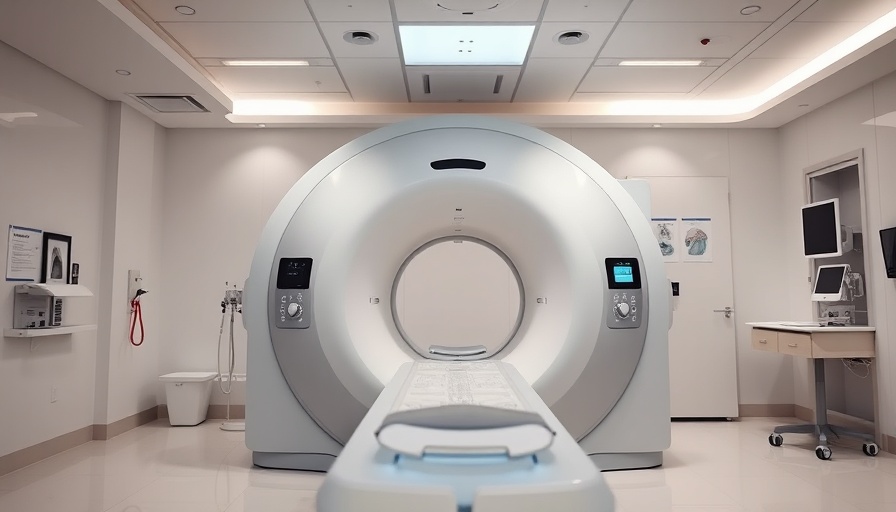
Revolutionizing Radiology: The Impact of AI on MRI Technology
In a groundbreaking move for the medical imaging industry, Philips has unveiled its next-generation MRI solution, SmartSpeed Precise, powered by dual artificial intelligence engines. This innovative technology promises to significantly reduce scan times—completing scans up to three times quicker—while enhancing image sharpness by 80%. The implications for diagnostic accuracy are profound, as faster scans without sacrificing quality can lead to timely and precise diagnoses for patients.
Understanding the Workflow Enhancement
The zero-click workflow integrated with MR Workspace software represents a major advancement in operational efficiency within radiology practices. By minimizing the need for manual intervention, this technology streamlines the scanning process, allowing medical staff to focus on what matters most: patient care. Such systems echo recent trends observed at SimonMed Imaging, where AI has also been leveraged to decrease MR scan times by 30%-50%, thereby improving patient throughput and comfort.
Streamlined Decision-Making with AI-Driven Tools
Adding to its suite of innovations, Philips introduced Smart Reading, an AI-driven reporting tool that assists clinicians in decision-making. This integration allows for a more data-driven approach to diagnostics, ensuring that radiologists can make faster, more informed decisions based on enhanced imaging data. The collaborative synergy between AI and human expertise is essential, as AI is designed to aid—not replace—radiologists in their critical work.
Aligning Healthcare with Sustainability Goals
Philips’ commitment to aligning its technological advancements with global access to quality healthcare and environmental sustainability is commendable. By utilizing helium-free BlueSeal scanners, the company aims to minimize environmental impact while enhancing patient access to high-quality imaging. This initiative resonates with broader healthcare trends, where sustainability and patient outcomes are increasingly intertwined.
The Role of AI in the Future of MRI
As we look towards the future, the integration of advanced AI technologies in MRI promises to address critical challenges within the healthcare space. Improved speed and accuracy are vital, particularly as the demand for faster imaging grows alongside healthcare needs. In fact, as demonstrated by recent research, AI can not only enhance imaging speeds but also significantly reduce the chances of missed diagnoses, thereby improving overall patient outcomes.
Why This Matters for Concierge Medical Practices
For owners of concierge medical practices, understanding these technological advancements is more than just keeping up with trends; it's about positioning themselves as leaders in patient care. By investing in cutting-edge imaging technology like Philips’ SmartSpeed Precise, concierge medical practices can enhance their service offerings. Faster and more accurate MRIs can lead to improved patient satisfaction, reinforced by the promise of timely diagnoses and streamlined workflows.
Considerations for Implementation
Transitioning to AI-enhanced MRI technologies requires careful planning and consideration. It is crucial for concierge practices to evaluate how these tools will fit into their existing operational frameworks. Integrating AI not only necessitates investment in technology but also staff training to maximize the potential of these innovations. The goal should always be to improve patient care through technology that supports healthcare workers rather than complicates their processes.
Conclusion: Embracing the Change
The future of MRI scanning appears bright, with multiple innovations positioning the industry for significant advancements. Concierge medical practices must embrace these changes to maintain their competitive edge and ensure the highest quality of care for their patients. By adopting revolutionary technologies like SmartSpeed Precise, they can enhance their diagnostic capabilities while promoting patient-centered approaches that prioritize timely interventions.
The integration of AI in medical imaging opens new opportunities for healthcare providers to redefine the patient experience. As you ponder the potential of these technologies, consider how embracing AI can lead not only to enhanced patient care but also to greater operational efficiency and sustainability within your practice.
 Add Row
Add Row  Add
Add 






Write A Comment